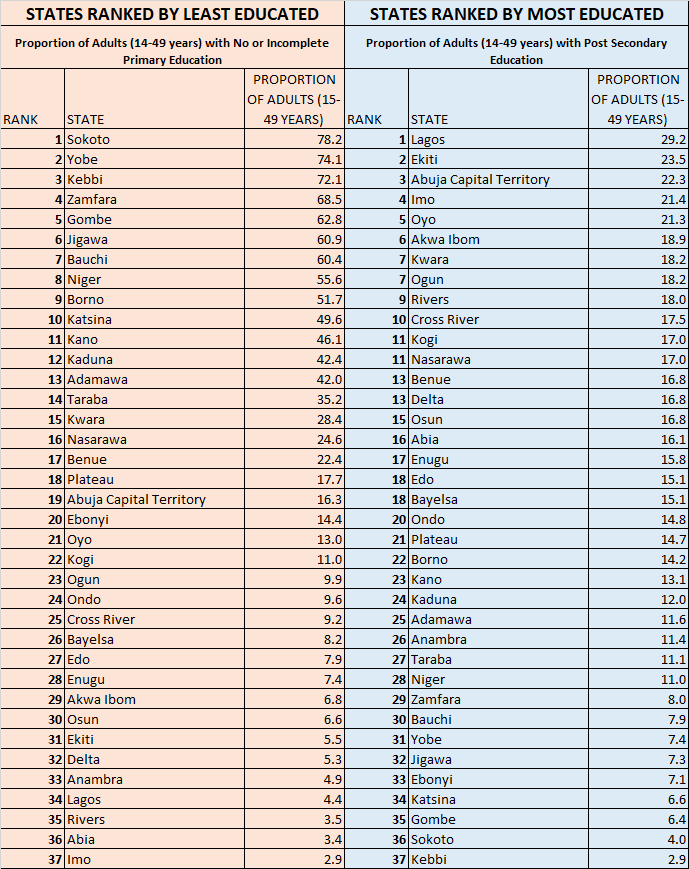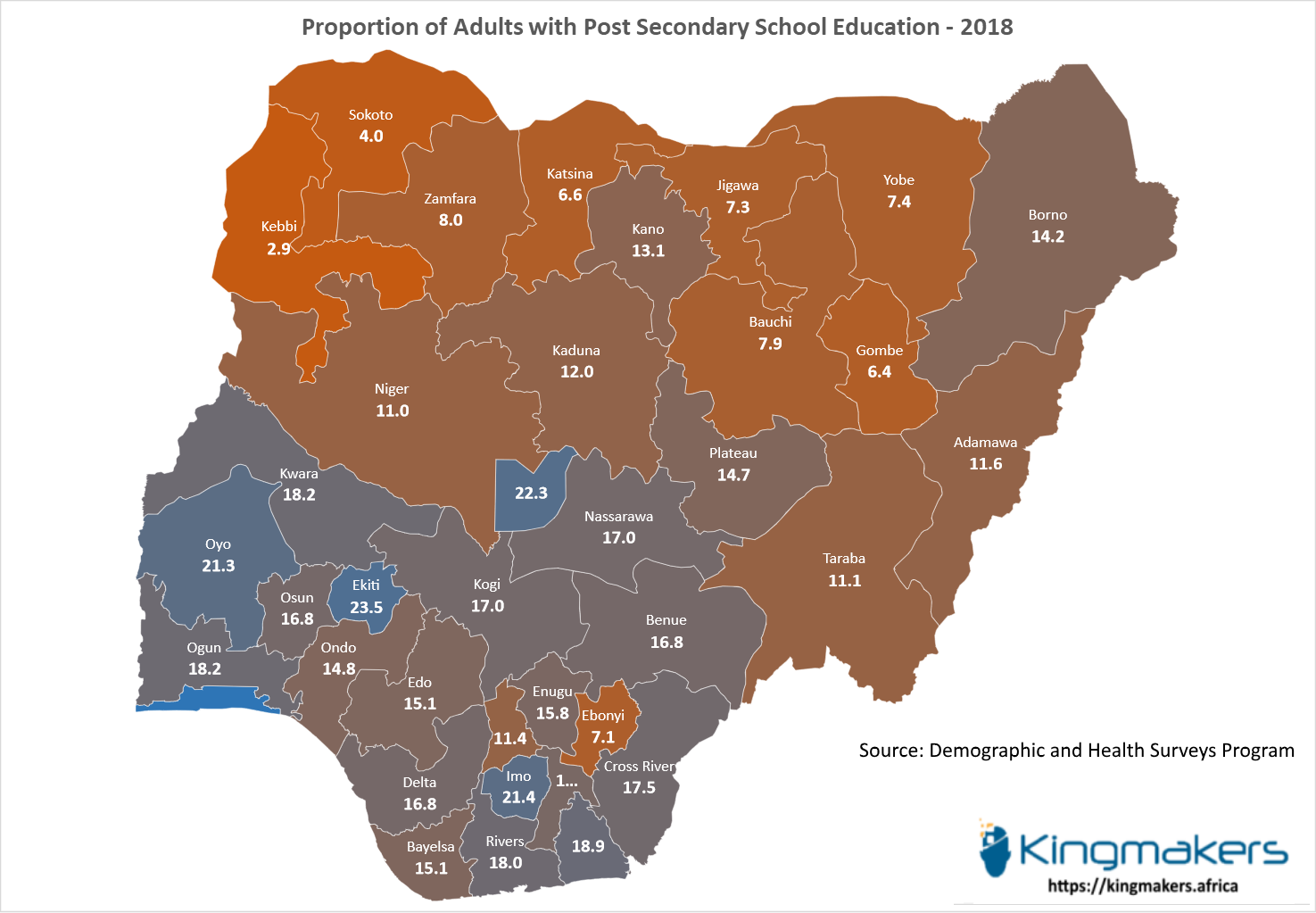
Low educational attainment has indirect and direct consequences on well-being of an individual. There may be direct effects on employment and earnings, as people without any qualifications find it harder to find jobs, particularly skilled jobs. In addition, lower skilled people are more likely to find employment in physically dangerous occupations, or poorly regulated work with increased risks of accidents.
Educational deprivation may also be indirectly associated with lower well-being through effects on health behaviours. Low levels of education may result in a poor understanding the risks associated with risky behaviours such as smoking or drug use. The association between lack of education and low access to quality health care services is also very strong.
In Nigeria, there is a clear disparity in the local populations between the states, with the Northern states are not only like to have a higher proportion of their population little or no education than their southern counterparts. For instance, of the top 20 states, only Ebonyi was from the southern part of the country, and nine of the top ten had more than 50% of the adult population with little or no formal education.
On the flip side, states like Lagos (4.4%) and Imo (2.9%) have low proportions of the uneducated, as well as have some of the highest proportions of adults with post secondary school education, 29.2% and 21.4% respectively.


